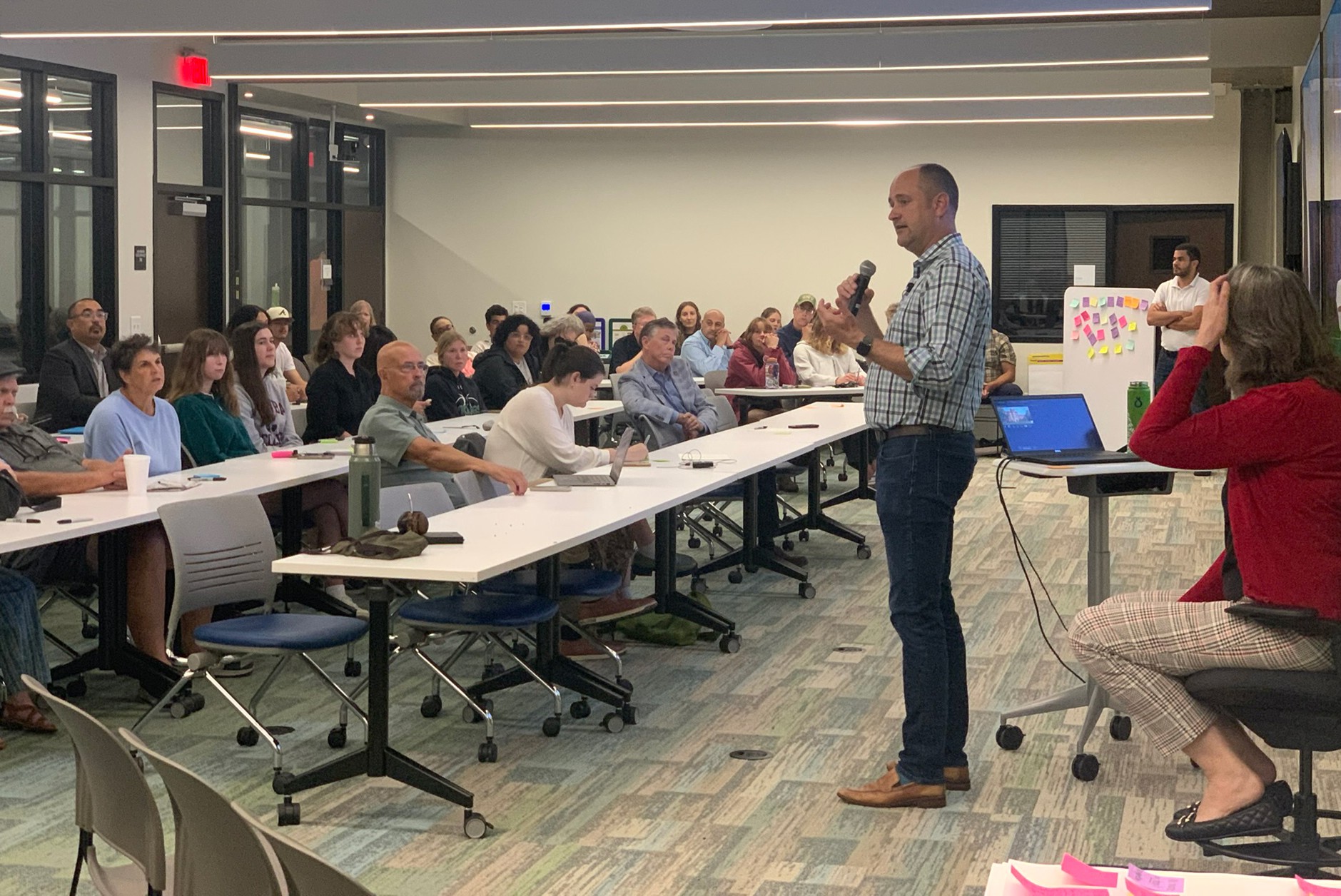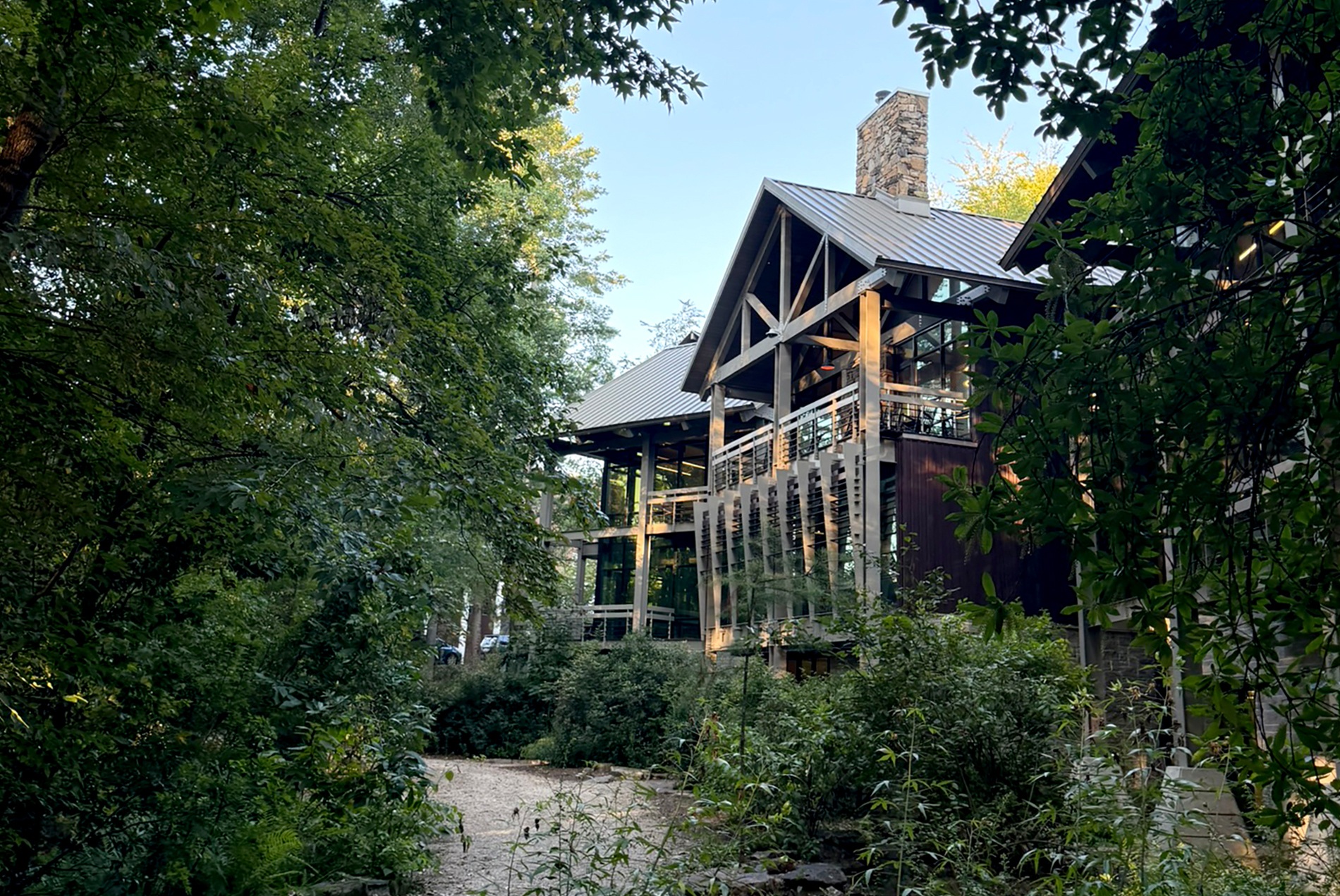Plan would enable the 276-acre campus in Salisbury, North Carolina, to become the first higher-ed campus in the nation—possibly the world—to go beyond carbon neutrality and be nature positive.
Catawba College has retained HOK to create a regenerative landscape master plan that aims to solidify the school as a global leader in sustainability.
The liberal arts college in central North Carolina has a legacy of environmental stewardship dating back to the 1990s and the founding of its Center for the Environment. In 2023, Catawba became the first university in the Southeast (and 13th in the U.S.) to earn carbon neutral certification.
The regenerative landscape master plan builds on the school’s sustainability legacy and directly ties into its “Campus as Forest” vision. The plan seeks to move the school beyond carbon neutrality by ensuring Catawba’s campus positively restores the environment, similar to how a forest nurtures and restores its surrounding ecosystem.
“The ‘Campus as Forest’ plan aims to create a regional hub for regenerative education, inspiring others to flourish and thrive with us as we implement strategies to improve the performance of our natural landscapes and strengthen our communities,” said Lee Ball, Catawba College’s vice president of sustainability and executive director of the Center for the Environment.

HOK’s Sean Quinn leads a workshop with Catawba College faculty and students.
Members of HOK’s Regenerative Design and Landscape Architecture practices held a kickoff workshop this month with Catawba College students, faculty and leadership. Residents and city officials from Salisbury and nearby Spencer also participated. Goals that emerged from the workshop included:
- Develop a regenerative framework that reinforces ecosystem services to create a nature positive impact.
- Foster a living-learning laboratory by engaging all departments through direct relationships and learning spaces within nature.
- Create a dynamic destination where residents and visitors can explore, engage and experience an immersive campus landscape.
- Become a model where people can learn about regenerative landscapes and regenerative design; be generous.
“We were blown away by the engagement we had during our workshops and look forward to collaborating more with Catawba College and local stakeholders on this important and pioneering work,” said HOK’s Sean Quinn, director of Regenerative Design. “This project promises to be truly transformative—activating the campus, regenerating ecology and engaging the community.”
HOK will continue to refine the master plan through the fall with the goal of presenting it in January to the Catawba College Board of Trustees for adoption.
